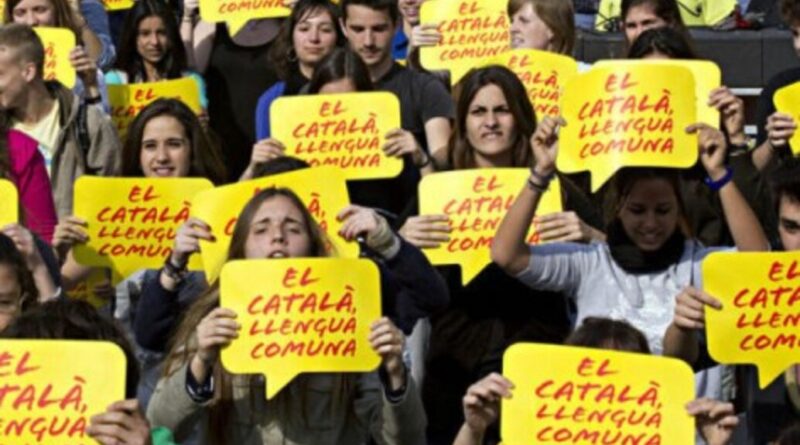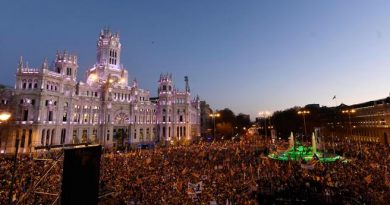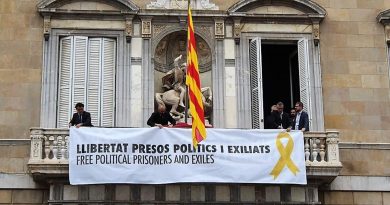Defend Catalonia and the Catalan language
Author: Gérard Florenson
It is not surprising that in our time the right and the extreme right show so much determination to eradicate Catalan. This is what they have been trying to do for some time both in the Balearic Islands and in the peripheral areas of Aragon. (the fringe). In the same way they attack the Valencian while denying their close relationship with the Catalan.
In the Principality, where their weakness does not favor them, They question the educational system and try to impose more Spanish under the pretext of a demand from non-Catalan families. Note that this concern only concerns the Spanish, no to immigrants who want their children to maintain ties with the culture of their country of origin.
The centralizing nationalism of the Spanish State is not limited to institutional and administrative spheres, must impose its vision of a united Spain, comprehensive, Castilian and preferably Catholic. Languages other than Spanish have no place in this fantasy nation.
The Popular Party and Vox are part of a long tradition of authoritarian centralization that characterized the Castilian monarchy: questioning any autonomy of other regions of the peninsula, desire to abolish local laws and customs, obedience imposed on power in Madrid. For understandable reasons given the Spanish reality, the desire to eradicate the Catalan language or at least confine it to private space appeared later, sometimes with brutal methods, sometimes more insidiously.
The dynastic union, the unification of Spain through the marriage of Isabel la Católica and Fernando de Aragón, does not affect the autonomy of the kingdom of Aragon of which Catalonia was a part. The war against the Arab kingdom of Granada and the colonization of America were, definitely, sufficient occupations.
The reign of Aragon, that grouped the current Aragón, Catalonia (which then included Roussillon), the Valencian Country and the Balearic Islands, It was a decentralized regime respecting the identity of each of its components, naturally including the language. Royal power was not absolute due to the existence of the Cortes, assemblies with broad powers, especially in tax matters. Aragon, Catalonia and the Valencian country each had their Cortes in which the nobility were represented., the clergy and the bourgeoisie of the cities. Farmers, the vast majority of the population, were excluded.
Conversely, The kingdom of Castile was authoritarian and centralized. Its population was much larger and it had exclusive control of the gold of America. The erosion of Aragonese and Catalan freedoms was effective but slow: almost a century to put an end to the Cortes, but the Inquisition prevailed in the old reign of Aragon. There was no direct attack on the Catalan language, but the king's appointment of Castilian bishops in Catalonia became systematic. Finally, The possibility of advantageous unions with large Andalusian or Castilian families made it possible to conquer part of the Catalan nobility. Franco was a great admirer of this “Golden Age”…
Centralism gained ground in the 17th century. The Count, Duke of Olivares, demanded that Catalonia contribute men and money for his military campaigns in Flanders and against France.. The Castilian troops settled in Catalonia where the population had to house and feed them.. Their presence was experienced as that of an occupying army, brutal, derogatory and spoke a foreign language. A popular revolt followed, known as the War of the Reapers, and then an alliance between Catalans and French that led to a catastrophe. Castellanos and French ended up agreeing behind Catalonia's back, which experienced a strengthening of Spanish supervision while France annexed Roussillon.
But it was in January 1716, at the end of the war of succession during which the Catalans had sided with the defeated side, when to complete a violent repression that Felipe V, the newly reigning Bourbon, launched through the so-called decree of "New squad" a brutal offensive against the use of the Catalan language, prohibiting it in all official documents and tolerating it only in the private and family sphere. This violence was effective; Catalan culture was suffocated for more than a hundred years and part of the property classes converted to Spanish, leaving Catalan to the working classes.
This is what the dictators Primo de Rivera and Franco will reaffirm after him: This is what the VOX leaders openly dream of, those of the PP more discreetly. This is what they are starting to do in the Balearic Islands and in the Valencian country, attacking not only the language but also popular traditions and fortunately encountering strong resistance.
But it is clear that centuries of effort, with more or less coercion, they have not worked: the Catalan, Basque and Galician continue to be very living languages. When the young footballer with a Moroccan father Lamine Yamal expresses himself perfectly in Catalan and explains it by saying that it is normal to be Catalan, We tell ourselves that it is not a victory for the Spanish.
For us it is a position of principle: Can talk, Writing and teaching the language is a fundamental right of people and in the current situation we are decisively on the side of those who face the anti-Catalan inclinations of the right and the extreme right.. Nevertheless, We criticize the weakness of the “Catalan” parties and the Generalitat, unable to challenge the media to defend the language. How to defend it and win over the “new Catalans” when we abandon public education?




